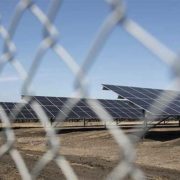CALGARY — A new report by the Pembina Institute highlights the role of clean energy in strengthening remote energy systems in communities across Canada.
The report, Restoring the Flow, is described as the first national scan of clean energy policy in remote communities. It finds that Indigenous leadership and government support over the past decade have helped improve energy security, job creation, and system efficiency in regions where electricity and heating costs remain among the highest in the country.
Remote communities—most of them Indigenous—often rely on aging diesel generators inherited from the federal government in the 1960s. Many of these systems are nearing the end of their service life, and residents typically pay six to ten times more for energy than the Canadian average. Government subsidies for diesel alone amount to more than $300 million annually.
According to the report, federal, provincial, and territorial programs have provided critical support for reducing diesel use and modernizing local microgrids. Notable examples include the Wataynikaneyap power transmission line, which has connected 17 remote Ontario communities to the provincial grid, and the Anahim Lake solar project in British Columbia, expected to displace more than 60% of the community’s diesel consumption.
The report also points to federal initiatives such as Wah-ila-toos, the Indigenous Off-diesel Initiative, Clean Energy for Rural and Remote Communities, and Northern REACHE, noting their impact in overcoming decades of policy inaction. It calls for recapitalization of these programs and continued coordination between governments, utilities, and Indigenous leadership.
Progress is uneven across jurisdictions, though British Columbia, Quebec, and the Yukon are cited as showing strong policy leadership. While momentum is building, the report stresses that gains are fragile and dependent on consistent funding, training, and collaboration with Indigenous governments.
“Remote Indigenous communities have made a strong case for policy change,” said Arthur Bledsoe, Senior Analyst at the Pembina Institute. “With aging diesel infrastructure, rising costs, and climate change threatening energy access, the shift to renewable energy isn’t just necessary—it’s already happening.”









Comments